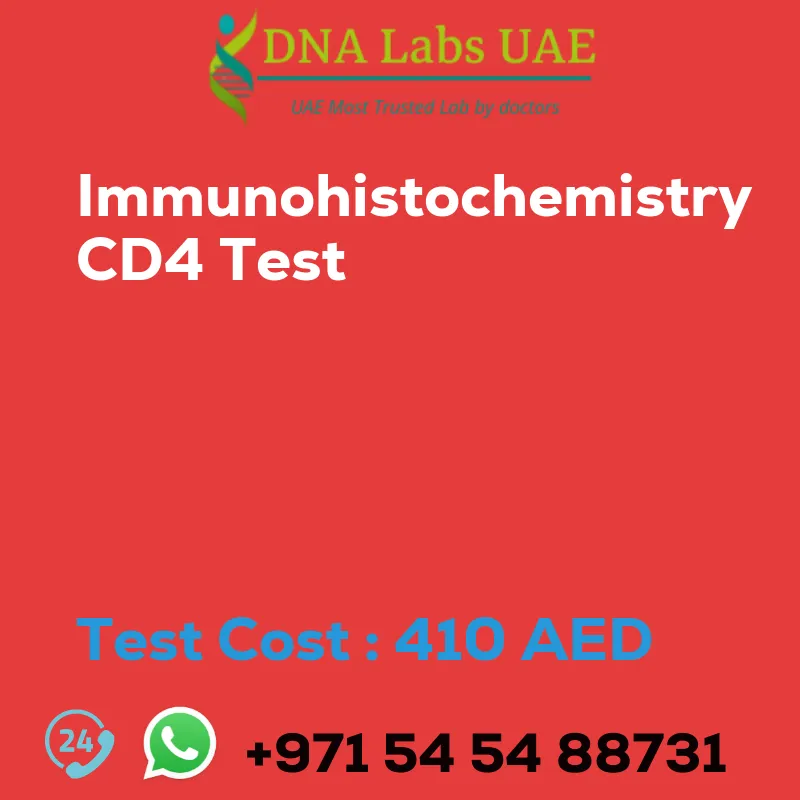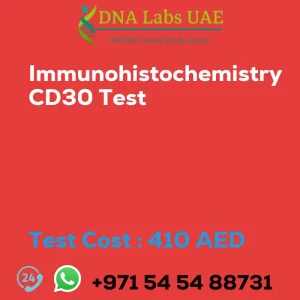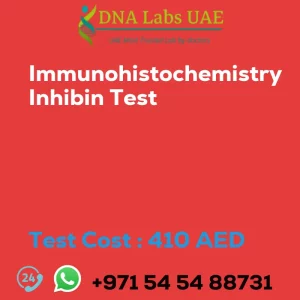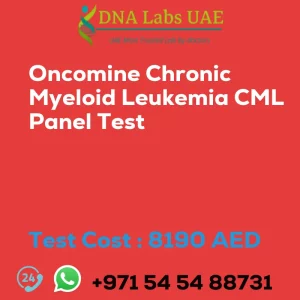IMMUNOHISTOCHEMISTRY CD4 Test – Cost, Symptoms, Diagnosis | DNA Labs UAE
Test Name: IMMUNOHISTOCHEMISTRY CD4 Test
Components: CD4 Test
Price: 410.0 AED
Sample Condition: Submit tumor tissue in 10% Formal-saline OR Formalin fixed paraffin embedded block. Ship at room temperature. Provide a copy of the Histopathology report, Site of biopsy and Clinical history.
Report Delivery: Sample Daily by 6 pm; Report Block: 5 days Tissue Biopsy: 5 days Tissue large complex: 7 days
Method: Immunohistochemistry
Test Type: Cancer
Doctor: Oncologist, Pathologist
Test Department: Pre Test Information
Provide a copy of the Histopathology report, Site of biopsy and Clinical history.
Test Details
The CD4 test is an immunohistochemistry (IHC) test used to detect the presence of CD4-positive T lymphocytes in tissue samples. CD4 is a glycoprotein found on the surface of helper T cells, which play a crucial role in the immune response.
In the CD4 IHC test, tissue samples are collected from a patient and processed into thin sections. These sections are then mounted on slides and treated with antibodies specific to CD4. The antibodies bind to the CD4 protein, allowing for its detection.
After the primary antibody incubation, a secondary antibody is applied, which recognizes and binds to the primary antibody. This secondary antibody is often labeled with a chromogen or a fluorophore, allowing for visualization of the CD4-positive cells under a microscope.
The CD4 IHC test is commonly used in clinical and research settings to assess the presence and distribution of CD4-positive T cells in various tissues. It can help in the diagnosis and monitoring of diseases such as HIV/AIDS, autoimmune disorders, and certain types of cancer.
| Test Name | IMMUNOHISTOCHEMISTRY CD4 Test |
|---|---|
| Components | |
| Price | 410.0 AED |
| Sample Condition | Submit tumor tissue in 10% Formal-saline OR Formalin fixed paraffin embedded block. Ship at room temperature. Provide a copy of the Histopathology report, Site of biopsy and Clinical history. |
| Report Delivery | Sample Daily by 6 pm; Report Block: 5 days Tissue Biopsy: 5 days Tissue large complex : 7 days |
| Method | Immunohistochemistry |
| Test type | Cancer |
| Doctor | Oncologist, Pathologist |
| Test Department: | |
| Pre Test Information | Provide a copy of the Histopathology report, Site of biopsy and Clinical history. |
| Test Details |
The CD4 test is an immunohistochemistry (IHC) test used to detect the presence of CD4-positive T lymphocytes in tissue samples. CD4 is a glycoprotein found on the surface of helper T cells, which play a crucial role in the immune response. In the CD4 IHC test, tissue samples are collected from a patient and processed into thin sections. These sections are then mounted on slides and treated with antibodies specific to CD4. The antibodies bind to the CD4 protein, allowing for its detection. After the primary antibody incubation, a secondary antibody is applied, which recognizes and binds to the primary antibody. This secondary antibody is often labeled with a chromogen or a fluorophore, allowing for visualization of the CD4-positive cells under a microscope. The CD4 IHC test is commonly used in clinical and research settings to assess the presence and distribution of CD4-positive T cells in various tissues. It can help in the diagnosis and monitoring of diseases such as HIV/AIDS, autoimmune disorders, and certain types of cancer. |








